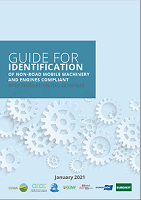
September 2018
New "Future of Jobs" Report by the World Economic Forum gives positive outlook on net effects of automation
The World Economic Forum has just published a new edition of its "Future of Jobs" Report. The findings are based on the views of HR and C-level executives across 12 industries and 20 developed and emerging economies (which collectively account for 70% of global GDP) — by asking them to reflect on the latest employment, skills and human capital investment trends across industries and geographies.
The report is aiming at providing a better understanding of the potential of new technologies, including automation and algorithms, to create new high-quality jobs and vastly improve the job quality and productivity of the existing work of human employees.
By 2025 more than half of all current workplace tasks will be performed by machines as opposed to 29% today. Such a transformation will have a profound effect on the global labour force, however in terms of overall numbers of new jobs the outlook is positive, with 133 million new jobs expected to be created by 2022 compared to 75 million that will be displaced.
54% of employees of large companies would need significant re- and up-skilling in order to fully harness the growth opportunities offered. At the same time, just over half of the companies surveyed said they planned to reskill only those employees that are in key roles while only one third planned to reskill at-risk workers.
While nearly 50% of all companies expect their full-time workforce to shrink by 2022 as a result of automation, almost 40% expect to extend their workforce generally and more than a quarter expect automation to create new roles in their enterprise.
To date, many employers’ retraining and upskilling efforts remain focused on a narrow set of current highly-skilled, highly-valued employees. Skills gaps - both among workers and among senior leadership - may significantly hamper new technology adoption and therefore business growth.
The outlook for job creation today is much more positive than the previous study of 2016, as businesses have a much greater understanding of the opportunities made available by technology. Automation will bring huge disruption to the global labour force as well as significant shifts in the quality, location, format and permanency of roles.
It is seen as critical that businesses actively support their existing workforces through reskilling and upskilling, that individuals take a proactive approach to their own lifelong learning and that governments suppport these efforts.
The Future of Jobs Across Industries
The future of jobs is not singular, and disparate impacts will be felt across industries depending on initial starting conditions, skills availability, technology adoption and adaptability of the workforce.
While there is an overall net positive outlook on the future job market, the balance of workforce expansion and contraction looks different across industries. The level of displacement is expected to vary considerably.
If managed well, a combination of reskilling and the augmentation of a range of tasks today can create the opportunity for new, higher productivity growth.
The Future of Jobs Across Regions
The impact of automation on jobs will also vary across countries and regions, especially as global companies consider a number of strategic factors in choosing where to locate specific job roles and economic activities. 74% of companies cited the availability of skilled local talent as their foremost consideration in determining job locations. More than half of companies surveyed for this report expect that by 2022, they would consider adjusting the composition of their value chains in response to the adoption of new technologies, and just under half expect to target new talent by modifying the location of their operations. These findings point to the potential impact of workforce management strategies on the geography of jobs across the global economy.
Shaping a Human-Centered Future of Jobs
Harnessing the transformative potential of the Fourth Industrial Revolution will require coordinated efforts among stakeholders in all industries and regions to formulate a comprehensive workforce augmentation strategy ready to meet the challenges of this new era of change and innovation. Business, government and workers must proactively plan and implement a new vision for the global labour market.
Industrious Brussels EU District, Avenue des Arts 6-9, 1210 Brussels, Belgium, +32 490 57 57 65
Transparency Register number: 0289344948-82














































































































